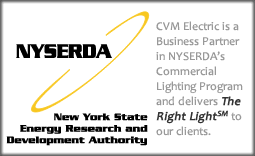Solar energy for your home or business is here today. Two distinct technologies–solar electric and solar thermal–are the systems employed today.
 Solar Electric
Solar Electric
Commonly known as “photovoltaics,” solar electric systems rely on photovoltaic (PV) panels to convert sunlight into direct current (DC) electricity. Then, the electricity goes through an inverter which converts it to alternating current (AC) electricity. AC electricity is what you can use throughout your home.
A grid-tied solar electric system can generate power on-site to supply a home or business that is connected to the utility grid and offset the usage from the utility company. Grid-tied systems are the most common types of solar systems.
An off-grid solar system with a battery back-up can supply power to a remote home or area that would otherwise not have access to electricity. An example of this would be a remote cabin in the woods.
Contact CVM Solar to find a solar solution for you.
 Solar Thermal
Solar Thermal
Solar thermal technology is the most economical way to heat your water for a range of purposes:
Domestic hot water – Solar can produce enough energy to meet 70-80% of your energy needs for domestic hot water production.
Space heating – Solar can be used in conjunction with a radiant floor heating system to provide space heating for a building. Solar-heated water runs through pipes underneath the floor boards, which then radiate heat upwards to warm the room.
Solar Pool Heating – Solar offers the most cost-effective method of pool heating, and allows you to extend your swimming season by several months.
Essentially, a solar water heating collector is a black box enclosing copper piping that sits on your roof and collects heat from the sun, and transfers it to the water that runs through the piping. This feeds to your storage tank, and acts as a pre-heater to your existing water heater.
Contact CVM Solar to find a solar solution for your home


